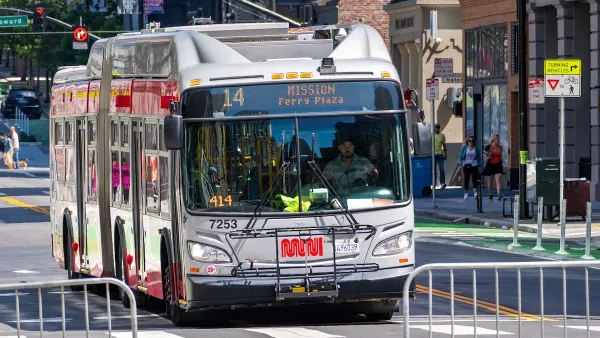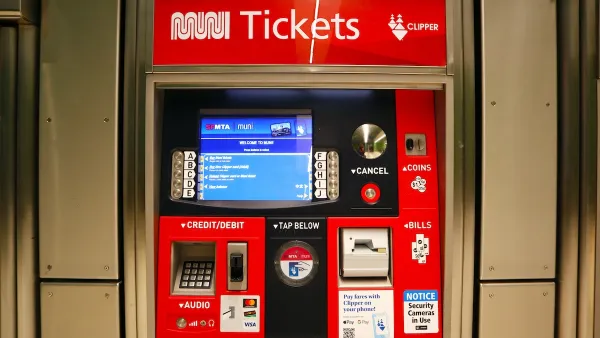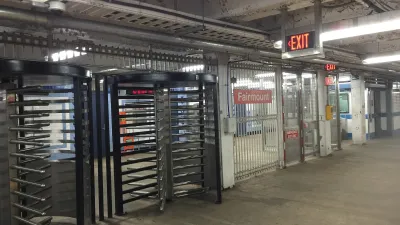Designs for the new Transbay Terminal in San Francisco may not be able to handle the amount of passengers expected by 2030, according to transportation officials. Some are calling for a redesign of the plans, set to begin construction next year.
"The proposed station would not be large enough to accommodate half the passengers expected to be using the system by 2030. In addition, the current scheme poses engineering challenges for a Caltrain extension to the Transbay Terminal downtown, officials said."
"The problems have transportation officials scrambling to find fixes to assure that the rail projects don't miss out on federal stimulus funds."
"As it stands, the first phase of the project would be built without a "train box," the skeleton of the underground train station. The idea is to build it later, when funding becomes available. But building the train box in the first phase could shave an estimated $100 million off the $490 million cost."
"The Transbay Joint Powers Authority board must decide by summer whether to move up building the train box in order to keep on schedule, said Adam Alberti, spokesman for the Transbay Authority. Construction on the new terminal is expected to start in early 2010."
"But even if Transbay officials put the train box on the fast track, there's still debate over whether the current design - one platform and two tracks for Caltrain and two platforms and four tracks for high-speed rail - would be sufficient."
FULL STORY: Unbuilt Transbay station could soon be obsolete

Planetizen Federal Action Tracker
A weekly monitor of how Trump’s orders and actions are impacting planners and planning in America.

Map: Where Senate Republicans Want to Sell Your Public Lands
For public land advocates, the Senate Republicans’ proposal to sell millions of acres of public land in the West is “the biggest fight of their careers.”

Restaurant Patios Were a Pandemic Win — Why Were They so Hard to Keep?
Social distancing requirements and changes in travel patterns prompted cities to pilot new uses for street and sidewalk space. Then it got complicated.

Platform Pilsner: Vancouver Transit Agency Releases... a Beer?
TransLink will receive a portion of every sale of the four-pack.

Toronto Weighs Cheaper Transit, Parking Hikes for Major Events
Special event rates would take effect during large festivals, sports games and concerts to ‘discourage driving, manage congestion and free up space for transit.”

Berlin to Consider Car-Free Zone Larger Than Manhattan
The area bound by the 22-mile Ringbahn would still allow 12 uses of a private automobile per year per person, and several other exemptions.
Urban Design for Planners 1: Software Tools
This six-course series explores essential urban design concepts using open source software and equips planners with the tools they need to participate fully in the urban design process.
Planning for Universal Design
Learn the tools for implementing Universal Design in planning regulations.
Heyer Gruel & Associates PA
JM Goldson LLC
Custer County Colorado
City of Camden Redevelopment Agency
City of Astoria
Transportation Research & Education Center (TREC) at Portland State University
Camden Redevelopment Agency
City of Claremont
Municipality of Princeton (NJ)





























